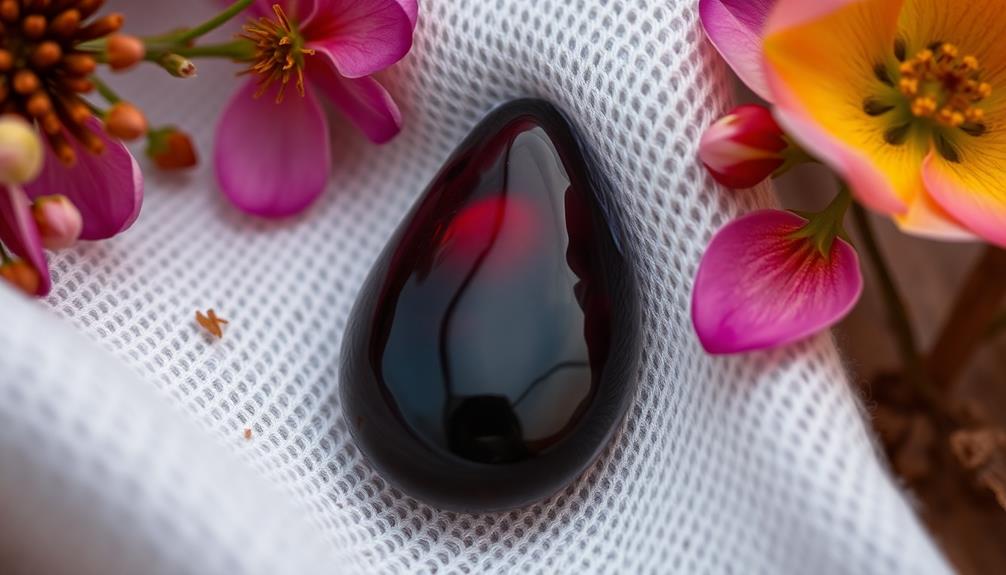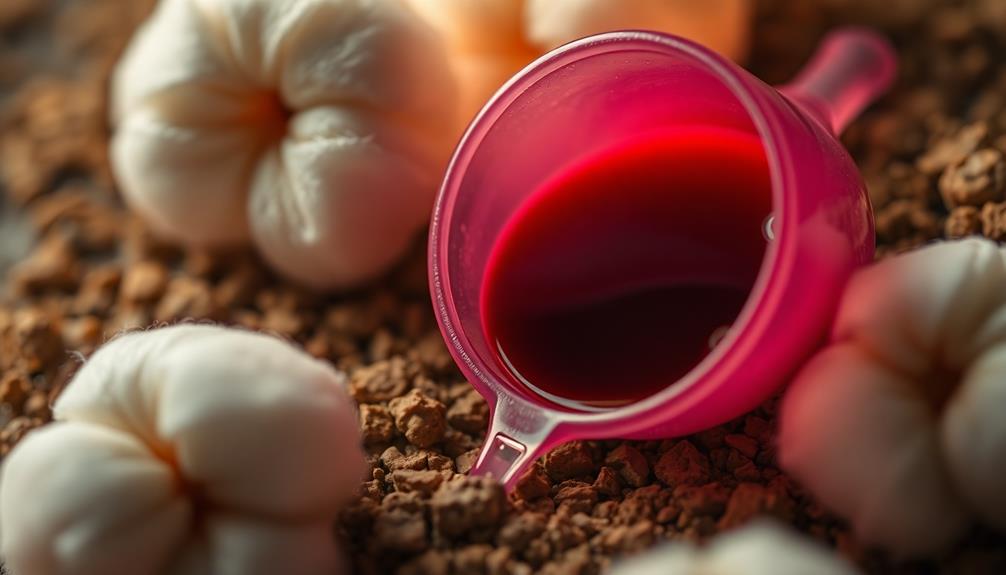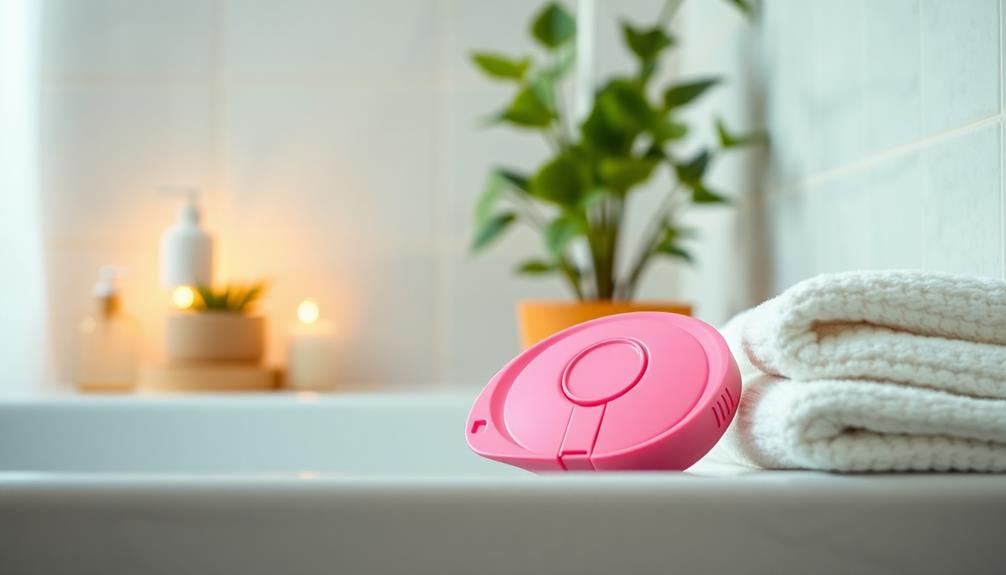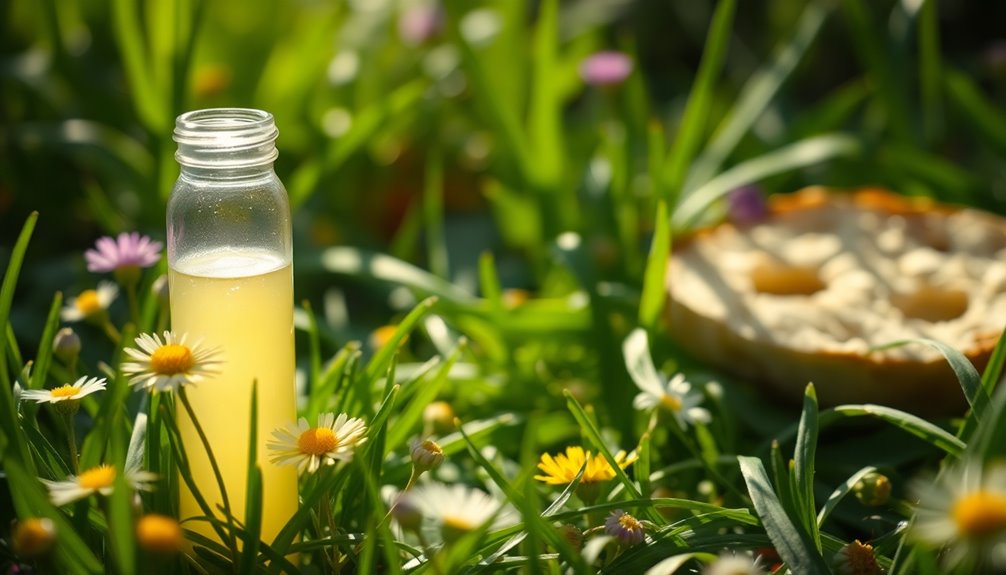A period smell can often be described as a blend of metallic and sometimes earthy notes. This unique scent comes from the menstrual blood, which contains iron, tissue, and mucus. Everyone's experience is a little different, so you might notice variations based on factors like diet, hygiene, and hormones. Some women find it's a subtle smell, while others might notice it more strongly. It's important to keep good hygiene to manage any odors, especially when they become strong. So, if you're curious about how to keep things fresh or what certain smells might indicate, there's a lot more to uncover!
Key Takeaways
- Period smell often has a metallic hint due to the iron content in menstrual blood, resembling the scent of copper.
- Normal menstrual odors can vary, presenting as sweet, earthy, or mildly pungent, depending on individual factors.
- Bacterial imbalance or infections can lead to stronger, unpleasant smells, such as a fishy odor, indicating a need for medical attention.
- Hygiene practices, diet, and hydration levels significantly influence the overall scent during menstruation.
- Cultural perceptions can shape emotional responses to menstrual odors, with some viewing them as natural, while others may feel stigmatized.
Introduction

Menstruation is a natural process that can come with some unique challenges, including the occasional period smell. You might notice a slight odor during your menstrual cycle, which is completely normal.
The smell of menstrual blood often has a metallic hint, similar to that of a copper coin. This odor can change depending on your hormones, diet, and even the bacteria present in your vagina. Maintaining good hygiene is essential, especially for those who are managing health conditions, as it can help prevent complications and promote overall well-being, similar to coping with health issues.
While a mild odor is typical, a strong smell might be a sign of something more serious, like health issues or an infection. It's crucial to pay attention to these changes.
The longer you keep a pad or tampon in, the more likely it's to develop a stronger smell, so regular hygiene practices are essential. Changing your menstrual products frequently and washing the genital area can help keep odors at bay.
Description of the Smell

During your period, the smell of menstrual blood can be quite distinctive. You might notice a metallic smell, similar to that of a copper coin, due to the iron content in the blood. This period blood smell can be quite normal, but it can change based on various factors, including Gold IRA fees that might impact your overall financial health.
For instance, if there's an imbalance in vaginal bacteria, you may pick up a fishy odor, which could suggest an infection.
Normal period odors can vary too; some women detect sweet or earthy notes arising from the mix of blood, tissue, and secretions. Your hygiene habits play a significant role in how noticeable these smells are. If you don't maintain good hygiene, the odors might become stronger or more unpleasant.
While a slight odor is perfectly normal during your menstrual cycle, particularly strong or unpleasant smells may indicate underlying health concerns. If you're ever worried about the smell, don't hesitate to talk to your healthcare provider.
It's always better to be informed and take care of yourself! Remember, you're not alone in experiencing these changes, and understanding them can help you feel more confident during your period.
Source and Composition

Understanding the source and composition of menstrual blood helps clarify its unique smell. Menstrual blood is mainly made up of blood, uterine tissue, and mucus. These components create that distinctive scent you notice.
One key factor is iron found in the blood, which can give off a metallic smell, often linked to menstruation. Additionally, maintaining a positive mindset, much like the principles of the Law of Attraction, can influence your overall well-being during your menstrual cycle, including how you perceive various bodily sensations and odors vibrational alignment with youthfulness and vitality.
Bacteria that naturally exist in the vagina can also interact with menstrual fluid. This interaction can change the odor, making it stronger if you don't maintain proper hygiene. Keeping things clean is essential!
Another interesting aspect is the vaginal pH. It usually ranges from 3.8 to 4.5, and this can affect how the scent of menstrual blood varies throughout your menstrual cycle.
Plus, factors like your diet, hydration levels, and hormonal changes can influence the overall odor as well.
Typical Scenarios or Environments

Experiencing your period in different environments can significantly affect how the smell of menstrual blood is perceived.
For instance, in hot and humid places, the smell might become stronger due to increased bacteria and moisture. It's important to pay attention to your hygiene habits during these times. If you're not changing your pads regularly, unpleasant odors can develop.
The scent of blood itself can be metallic, like a copper coin, but this can change based on your dietary choices. Foods you eat can influence the smell of your menstrual blood. So, if you've just had spicy or strong-smelling foods, you might notice a difference!
Good hygiene practices, like bathing regularly and changing menstrual products every few hours, can help keep odors at bay. If you're proactive about your hygiene, the smell usually won't be detectable to others, allowing you to feel more confident.
Emotional or Cultural Associations

Cultural associations surrounding period smells can deeply influence how you feel about menstruation. In many societies, menstrual odors are tied to myths and taboos, leading to stigma and making you feel uncomfortable or embarrassed.
However, it's important to remember that emotional responses to these smells can vary. For some, they symbolize fertility and womanhood, celebrated in rituals and cultural practices.
When you think about menstrual odors, consider how these cultural views impact your self-esteem and well-being. Research shows that negative perceptions surrounding menstruation can affect how you feel during your period.
But there's good news! Open discussions about menstrual health, including odors, can help break down these cultural stigmas. By talking openly, we can create a more positive understanding of menstruation, making it easier for everyone to embrace this natural part of life.
In the end, recognizing the emotional connections to menstrual odors allows you to redefine your experience. Instead of feeling ashamed, you can celebrate your body and its natural processes.
After all, menstruation is a sign of health, fertility, and an essential part of being human.
Health or Safety Considerations

When it comes to menstrual odors, it's important to pay attention to your body and any changes you notice. Typically, period smells can be metallic due to the iron in your blood, but if you encounter unusual smells, it's time to consider health considerations.
Strong or foul odors might suggest an infection like bacterial vaginosis or even a retained tampon. If you notice persistent odors that don't improve with good hygiene, you should consult a healthcare provider.
Don't ignore accompanying symptoms, such as unusual discharge, itching, or burning during urination. These could signal underlying issues that need immediate medical evaluation.
Regular check-ups with your gynecologist are crucial for monitoring your reproductive health and addressing any concerns related to menstrual odors or discharge changes.
Maintaining proper hygiene is key! Remember to change your menstrual products regularly and wash the genital area to help reduce any unpleasant odors during your period.
Final Thoughts

Understanding menstrual odors is essential for maintaining your reproductive health. When it comes to period odors, it's normal to notice a mild, earthy smell due to the iron in menstrual blood.
However, if you detect a fishy smell or any unusually strong odor, it might signal an underlying issue, like an infection.
Your period odors can change based on your diet, hydration, and hormonal shifts, so don't be alarmed if they vary. Practicing good hygiene, such as changing menstrual products frequently and washing your genital area, can help control those odors during menstruation.
It's crucial to pay attention to any unusual changes in smell, especially if you experience other symptoms like itching or discomfort. These could indicate an infection caused by bacteria, which is best checked with your healthcare provider.
Remember, there's no need to feel embarrassed; everyone goes through this!
Staying informed and proactive about your menstrual health can make a significant difference. Embrace your journey, and don't hesitate to seek help if something feels off. You've got this!
Frequently Asked Questions
How Would You Describe the Smell of Period Blood?
You might notice a metallic scent, similar to copper, when dealing with period blood. Sometimes, it can be influenced by vaginal bacteria or retained products, which can create stronger or different odors you should pay attention to.
What Is That Smell When I'm on My Period?
When you're on your period, you might notice a metallic smell, often compared to a copper coin. This scent can vary based on hygiene, diet, and your body's natural bacteria during menstruation.
Does Female Arousal Have a Smell?
Yes, female arousal does have a smell. It's often described as musky or sweet, influenced by a mix of secretions, sweat, and individual biology. Your body's unique chemistry can affect how this scent is perceived.
Why Do I Have a Fishy Smell?
If you notice a fishy smell, it could indicate bacterial vaginosis or another infection. Pay attention to any additional symptoms and consult a healthcare provider if the odor persists or worsens despite good hygiene practices.









